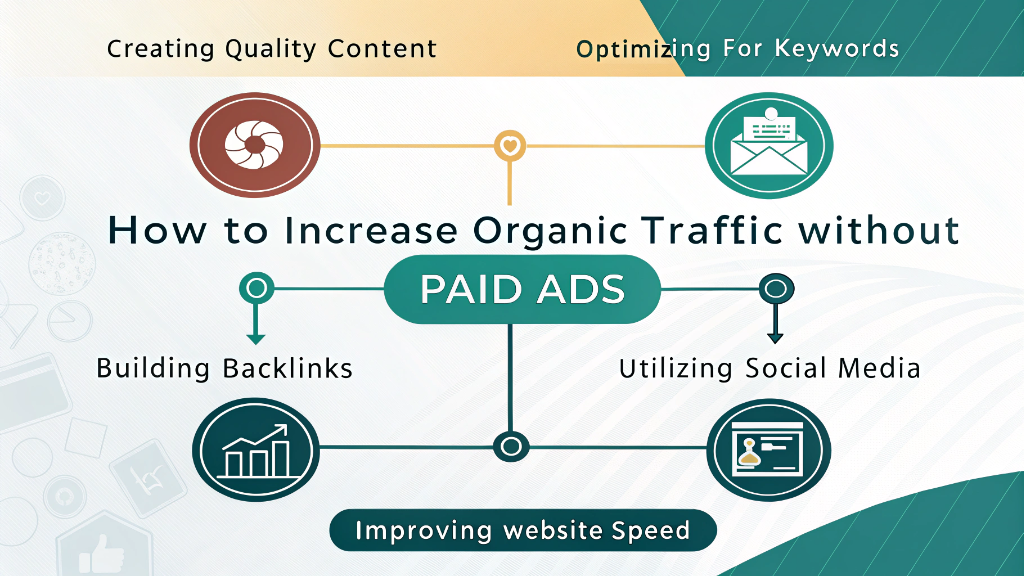I'm always excited to take on new projects and collaborate with innovative minds.
+21623776423
I'm always excited to take on new projects and collaborate with innovative minds.
+21623776423
organic search results rather than paid ads

Did you know that 70% of clicks go to organic search results rather than paid ads? If you’re relying solely on paid promotions to grow your website’s visibility, you’re missing out on a massive opportunity. The truth is, unlocking proven tactics to drive more organic traffic to your website without spending a dime on ads or promotions isn’t just possible—it’s a game-changer for sustainable growth.
In this guide, we’ll break down actionable, data-backed strategies to help you attract more visitors, boost rankings, and build long-term authority—all without burning your budget on ads.
Just like a recipe, increasing organic traffic requires the right mix of strategies. Here’s your checklist:
Substitutions: If backlinks are hard to earn, focus on guest posting or creating shareable infographics. No budget for SEO tools? Try free alternatives like AnswerThePublic for content ideas.
Organic traffic growth isn’t instant, but the payoff is worth it. Here’s a breakdown:
Pro Tip: Combining these strategies can accelerate results by up to 40%, according to HubSpot’s 2023 SEO report.
Start by identifying low-competition, high-volume keywords. Use tools like SEMrush to find long-tail phrases (e.g., “best organic traffic strategies for beginners”).
Google prioritizes content that answers user queries. Craft in-depth guides, how-tos, or listicles that address pain points.
Reach out to industry blogs for guest posting opportunities or collaborate on expert roundups.
A 1-second delay in load time can drop conversions by 7% (Portent, 2023). Use Google PageSpeed Insights to identify fixes.
Why invest in these strategies? Here’s the ROI:
Short on time? Try these shortcuts:
Pair your strategies for better results:
Increasing organic traffic without paid ads is a marathon, not a sprint. By focusing on keyword research, high-quality content, and technical SEO, you’ll build a sustainable flow of visitors. Ready to unlock proven tactics to drive more organic traffic to your website without spending a dime? Start with one strategy today and watch your growth compound!
Your Turn: Which tactic will you try first? Share your results in the comments!
Q: How long does it take to see results from SEO?
A: Typically 3–6 months, but small wins (like ranking for long-tail keywords) can happen sooner.
Q: Can I rank without backlinks?
A: Yes, but backlinks significantly boost authority. Focus on content quality and UX if links are scarce.
Q: Is organic traffic better than paid ads?
A: Both have pros and cons, but organic traffic offers long-term, cost-effective growth.
Q: How often should I publish new content?
A: Aim for 1–2 high-quality posts per week, but prioritize value over volume.
Your email address will not be published. Required fields are marked *